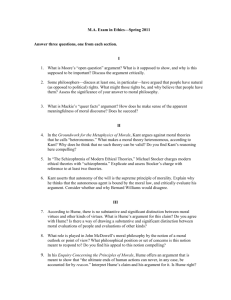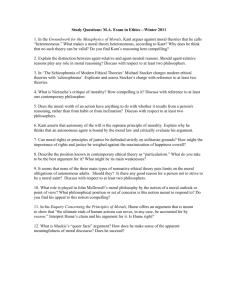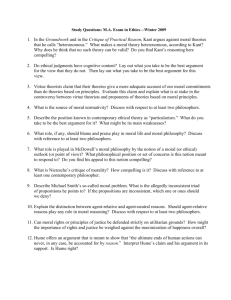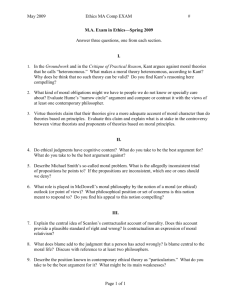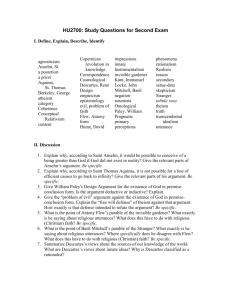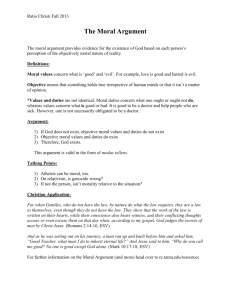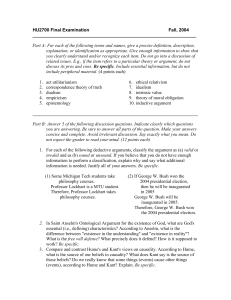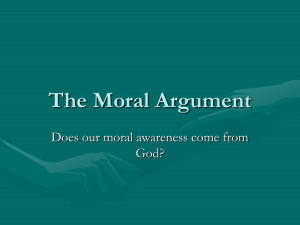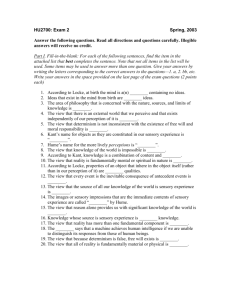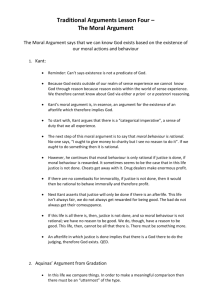doc
advertisement
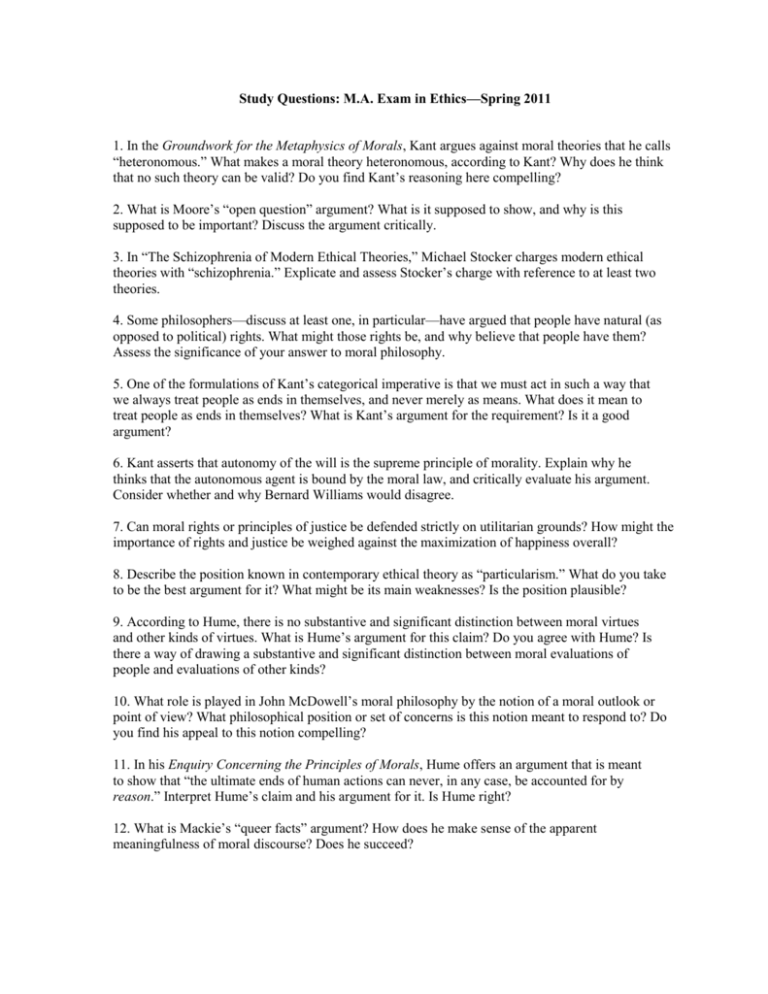
Study Questions: M.A. Exam in Ethics—Spring 2011 1. In the Groundwork for the Metaphysics of Morals, Kant argues against moral theories that he calls “heteronomous.” What makes a moral theory heteronomous, according to Kant? Why does he think that no such theory can be valid? Do you find Kant’s reasoning here compelling? 2. What is Moore’s “open question” argument? What is it supposed to show, and why is this supposed to be important? Discuss the argument critically. 3. In “The Schizophrenia of Modern Ethical Theories,” Michael Stocker charges modern ethical theories with “schizophrenia.” Explicate and assess Stocker’s charge with reference to at least two theories. 4. Some philosophers—discuss at least one, in particular—have argued that people have natural (as opposed to political) rights. What might those rights be, and why believe that people have them? Assess the significance of your answer to moral philosophy. 5. One of the formulations of Kant’s categorical imperative is that we must act in such a way that we always treat people as ends in themselves, and never merely as means. What does it mean to treat people as ends in themselves? What is Kant’s argument for the requirement? Is it a good argument? 6. Kant asserts that autonomy of the will is the supreme principle of morality. Explain why he thinks that the autonomous agent is bound by the moral law, and critically evaluate his argument. Consider whether and why Bernard Williams would disagree. 7. Can moral rights or principles of justice be defended strictly on utilitarian grounds? How might the importance of rights and justice be weighed against the maximization of happiness overall? 8. Describe the position known in contemporary ethical theory as “particularism.” What do you take to be the best argument for it? What might be its main weaknesses? Is the position plausible? 9. According to Hume, there is no substantive and significant distinction between moral virtues and other kinds of virtues. What is Hume’s argument for this claim? Do you agree with Hume? Is there a way of drawing a substantive and significant distinction between moral evaluations of people and evaluations of other kinds? 10. What role is played in John McDowell’s moral philosophy by the notion of a moral outlook or point of view? What philosophical position or set of concerns is this notion meant to respond to? Do you find his appeal to this notion compelling? 11. In his Enquiry Concerning the Principles of Morals, Hume offers an argument that is meant to show that “the ultimate ends of human actions can never, in any case, be accounted for by reason.” Interpret Hume’s claim and his argument for it. Is Hume right? 12. What is Mackie’s “queer facts” argument? How does he make sense of the apparent meaningfulness of moral discourse? Does he succeed?
